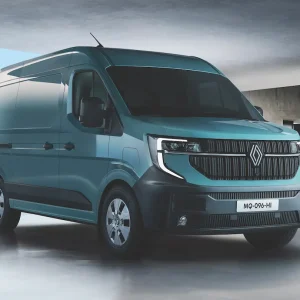One thing that the UK is highly unlikely to run short of in the near future is a steady supply of used Ford Transits. New examples sell in their thousands annually and the vast majority eventually find their way onto the second-hand market.
The past decade or so has seen two significant years so far as the Transit is concerned. They were 2000, when an all-new model was launched in both front- and rear-wheel-drive guise – pre-2000 models were rear-wheel-drive (RWD) only – and 2006, when the Transit was reworked with new and revised common rail diesel engines and the introduction of disc brakes all round as standard.
We are going to concentrate on post-2000 Transits. While some pre-2000 examples may be worth considering, high mileage and hard usage in the hands of two – possibly three – owners are likely to make many of them doubtful second-hand buys.
As with all vans you should start with the paperwork. Check that the vendor’s name and address is the same as the one shown on the V5 log book, and examine the V5 carefully to see if it has been altered in any way. In particular, ensure that the Vehicle Identification Number on the vehicle and the one on the V5 tally.
If that is all in order, contact HPI – www.hpicheck.com – to ensure that your prospective purchase is not stolen, an insurance write-off, or subject to an outstanding finance agreement. HPI says that one-in-three of the vans it checks has something to hide – a worrying statistic.
If your Transit is old enough to require an MoT test, then make sure that a valid certificate is in force and see how long it has got to run. Ask to inspect the service book too. If the Transit has been maintained at the prescribed intervals – especially by a Ford dealer – then that’s a point in its favour. If there are gaps in the record, then be wary.
Well-used examples of pre-2000 Transits used to be notorious for whining rear axles. While that does not appear to be a characteristic of their more recent RWD counterparts, if you hear a knocking sound from the back as you accelerate away from rest in one – and make sure you test-drive your prospective purchase before you even think of parting with any cash – then that may be a warning that the universal joint is on its way out.
The majority of post-2000 RWD Transits are powered by a 2.4-lite diesel. If it emits a loud and distinctive rattling sound while idling, then that indicates that the timing chain is on borrowed time.
A rattling under acceleration – and this is as likely with front-wheel drive (FWD) as it is with RWD examples – is a strong hint that the flywheel and the clutch will soon need replacing.
As with any van, check carefully for any evidence of oil or water leaks, and watch out for black smoke from the exhaust. That’s a harbinger of engine trouble.
When you take your test drive, ensure the gear change is smooth and glitch-free, watch out for any play in the steering or sogginess when you apply the brakes, and listen for any creaks and squeaks from the suspension. Check that the radio works by all means, but switch it off during your drive. Radio 1 at maximum decibels can drown out a multitude of sins.
Inspect the tyres for splits and bulges in the sidewall, and check the tread depth. If the tread has worn unevenly, then it is likely that the wheels are misaligned.
If the load area has been ply-lined, then that is a big plus-point. That means the sides will not have been dented and scraped during loading and unloading. Also make sure you take a look underneath the vehicle insofar as you possibly can. Clinging dirt and grease may conceal corrosion.
One of the big advantages of buying a Transit is that every commercial vehicle workshop in the country – and quite a few car workshops too – will have serviced one at one time or another. Parts are widely available and competitively- priced, and the Ford van network continues to boast comprehensive UK coverage.
So how much should you pay? A budget of £3000-£4500 should allow you to purchase a decent, useable example at auction says auctioneer Manheim. Recent Manheim sales have seen a long-wheelbase RWD 330 90hp 2.4 TDI diesel – 2005 on a 55 plate and with 53,000 miles recorded – sell for £4075. A long-wheelbase FWD 280 with a 100hp 2.0-litre TDI diesel under its bonnet, again dating back to 2005 but with a 05 plate and with 60,000 miles on the clock, was knocked down for £3000. A somewhat newer short-wheelbase FWD 260 – 2006-vintage on a 56 plate – again with a 100hp 2.0-litre TDI engine and with 73,000 miles to its name – went for £4000. Buy from a dealer and you will need to add well over £1000 to those prices. Remember, though, that you will have a far better chance of obtaining redress if things go pear-shaped than you will if you purchase at auction.





